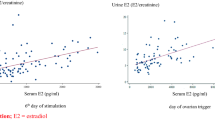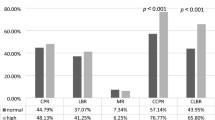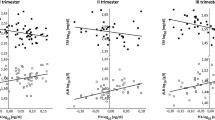Abstract
Serum and early morning urine specimens were obtained from 62 patients. The levels of beta human chorionic gonadotrophin (BhCG) in both serum and urine were estimated simultaneously in all cases. At the time of estimation 43 patients had transitional cell carcinoma of the bladder, one had transitional cell carcinoma of the renal pelvis and three had carcinoma in situ (two of whom also had overt carcinoma). Raised serum and urinary levels were found in only three patients, all of whom had poorly differentiated or metastatic transitional cell carcinoma of the bladder. This observation is in accordance with previous studies. In one of these patients, who underwent transurethral resection of her bladder tumour, the urinary levels returned to within normal limits post resection. An additional three patients had elevations of serum BhCG. Two of these three patients had poorly differentiated transitional cell carcinoma present at the time of estimation and one had no sign of recurrence. Using immunoperoxidase staining a retrospective study was undertaken to stain all available sections belonging to patients studied to observe whether BhCG was being produced by the respective tumours. Twelve well differentiated, nine moderately well differentiated and seven poorly differentiated specimens were available. In no case was evidence of BhCG production demonstrated in these tumours despite its presence being demonstrable in positive controls. We confirm the production of BhCG associated with bladder tumours, a feature correlated with poorer differentiation. Studies employing larger patient numbers are necessary to clarify the role of this tumor marker in patients with well differentiated bladder tumours.
This is a preview of subscription content, access via your institution
Access options
Subscribe to this journal
Receive 24 print issues and online access
$259.00 per year
only $10.79 per issue
Buy this article
- Purchase on Springer Link
- Instant access to full article PDF
Prices may be subject to local taxes which are calculated during checkout
Similar content being viewed by others
Author information
Authors and Affiliations
Rights and permissions
About this article
Cite this article
McLoughlin, J., Pepera, T., Bridger, J. et al. Serum and urinary levels of beta human chorionic gonadotrophin in patients with transitional cell carcinoma. Br J Cancer 63, 822–824 (1991). https://doi.org/10.1038/bjc.1991.182
Issue Date:
DOI: https://doi.org/10.1038/bjc.1991.182
This article is cited by
-
Das Urothelkarzinom mit trophoblastischer Differenzierung
Der Urologe (2006)
-
Bladder tumor markers: Need, nature and application. 2 Tumor and tumor-associated antigens
International Urogynecology Journal and Pelvic Floor Dysfunction (1998)



